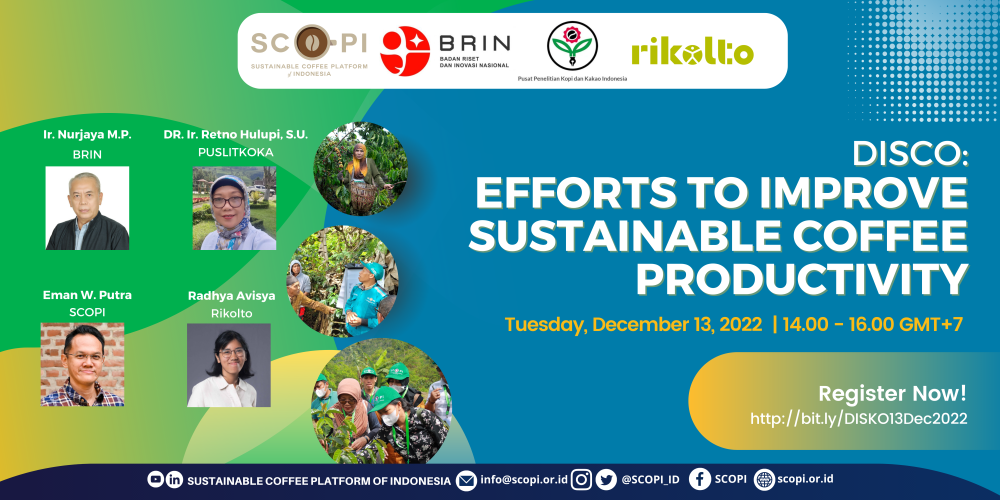Detail Activity

Activity Description
The impact of climate change that is happening right now is being felt by everyone, including coffee farmers. Excessive rainfall and strong winds, long dry high temperature rises, have many influences on the productivity of coffee plants. On November 10 2022, SCOPI together with HRNS, University of Lampung and the KEHATI Foundation held a Coffee Discussion with the theme Biocharcoal and Compost as an effort to mitigate and adapt to climate change that is occurring, especially in coffee sectors.
At the beginning of the presentation it was explained that most parts of Indonesia are currently experiencing the La Nina phenomenon, where there is excessive rain intensity, and there are almost no dry months in a year. This has an impact on coffee production in the following year, where there will be a decrease in the percentage of flowering and causes a lot of fruit fall on coffee plants.
Biochar itself is a fix agent which produced from the process of burning unused crop residues/biomass (such as coffee husks, rice husks, corn cobs) through incomplete combustion or with limited oxygen supply (pyrolysis). Meanwhile, compost (fertilizer) itself is an organic material that is decomposing with the help of decomposer bacteria so that the end result can be used as a soil amendments.
Utilization of Biochar and Compost is one of the efforts that can be done by coffee farmers in dealing with current phenomenon of climate change. In principle, utilization of biochar and compost can provide adequate nutrient availability for soil and plants, increase soil pH and absorb water and nutrients in the soil. This Coffee Discussion (DISKO) can be accessed via Sustainable Coffee Platform of Indonesia Youtube Channel in Click Video Here
